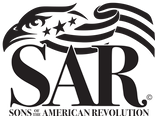|
Below is the current list with all of the dates for all ROTC awards events and all available JROTC award dates for the 50 JROTC and five ROTC programs within the borders of Ft. Dearborn. Each ROTC program has received one silver medal set and each JROTC one bronze.
Note: We have not yet been notified of the majority of the CPS JROTC dates (only four of the 45 CPS JROTC programs have announced their award dates), which will occur in May. Additional weekly updates will go out from now until the end of May. If you plan to attend, please contact the person listed as the RSVP contact for that school and email Maj. Randy Belden , so he can add you the updates. ROTC Awards events: Date: 25 Date / time: 25 April / 7:00 A.M. Unit: Northwestern / Loyola / Naval ROTC Battalion Location: 617 Haven Street, Evanston, IL 60208 RSVP: Lt. Matt Arnold, [email protected], 847-491-2039. Attending: Randy Belden Date: 25 Date / time: 25 April / 5:30 P.M. Unit: University of Ill/ Illinois Institute of Technology/ Army ROTC “Fire” Battalion Location: McCormick Tribune Campus Center, 3201 S State St, Chicago IL 60616 RSVP: SFC Howard Clifford, [email protected], 312-808-7140. Attending: Randy Belden Date: 26 Date / time: 26 April / 8:30 A.M. Unit: ITT/UIC / Naval ROTC Battalion Location: McCormick Tribune Campus Center, 3201 S State St, Chicago IL 60616 RSVP: LT John Dugger, [email protected], 312-567-8963. Attending: Randy Belden Date: 26 Date / time: 26 April / 2:00 P.M. Unit: ITT / Air Force ROTC Battalion Location: IIT Tower Auditorium, 10 W. 35th Street, 15th Floor, Chicago, IL 60616-3793 RSVP: Capt. JONATHAN SACKS, [email protected], 312-567-3801. Attending: Randy Belden Date: 26 Date / time: 26 April / 2:00 P.M. Unit: Loyola / Army ROTC Battalion Location: Damen Student Center, 2nd Floor, 6511 N Sheridan Rd, Chicago, IL 60626. RSVP: CPT Guillermo Romo, [email protected], 773-508-8530. Attending: Non-CPS JROTC award events: 24 April Date / time: 24 April / 5:00pm Unit: Naval JROTC, Bloom Trail High School Location 22331 Cottage Grove Ave, Chicago Heights, IL. 60411 RSVP: LCDR Patrick Isom, USN (Ret), 708-758-7000 ext 3240, [email protected] Attending: Randy Belden 25 April Date / time: 25 April / 6:00pm Unit: Naval JROTC, Bloom High School Location: 101 West 10th Street, Chicago Heights, IL. 60411 RSVP: Lt. Stacy Henderson, USN (Ret), 708-755-1122 ext 2162, [email protected] Attending: 25 April Date / time: 25 April / 6:30pm Unit: Air Force JROTC, Alan B. Shepard High School Location: 13049 S. Ridgeland Ave., Palos Heights, IL 60463 RSVP: Maj. Daniel Johnson, USAF (Ret), 708-371-3467, [email protected] Attending: Chris Gomez 2 May Date / time: 2 May / 6:00pm Unit: Naval JROTC, Proviso East High School Location: 807 S. 1st Ave, Maywood, Ill 60153 RSVP: LCDR Darryl Person, USN (Ret), 708-202-1756, [email protected]. Attending: 3 May Date / time: 3 May / 4:00pm Unit: Naval JROTC, Harold L. Richards High School Location: 10601 S. Central Ave, Oak Lawn, IL 60453 RSVP: CDR Douglas Grothers, USN(Ret), 708-499-5440, [email protected]. Attending: CPS JROTC award events: 16 May Date / time: 16 May / 10:00am. Unit: Army JROTC / Gage Park High School Location: 5630 South Rockwell Street, Chicago, IL 60629 RSVP: MAJ Christopher Bonds USA (Ret), (773) 535-9230, [email protected] Attending: 17 May Date / time: 17 May / 2:15pm Unit: Naval JROTC / George H. Corliss High School Location: 821 East 103rd Street, Chicago, IL 60628 RSVP: CPO William McGuire, (773) 535-5153, [email protected] Attending: 17 May Date / time: 17 May / 5:30pm Unit: Naval JROTC / William Howard Taft High School Location: 6530 West Bryn Mawr Avenue, Chicago, IL 60631 RSVP: CMDR Gerard Egler USN (Ret), (773) 534-1058, [email protected] Attending: 24 May Date / time: 24 May / 9:45am / Room 334 Unit: Marine JROTC / Marie Sklodowska Curie Metropolitan High School Location: 4959 South Archer Avenue, Chicago, IL 60632 RSVP: 1stSGT Stanley Westbrook, (773) 535-2017, [email protected] Attending: Chris Gomez Notes from the Genealogist General, John Sinks (North Carolina Records)
North Carolina Revolutionary Pay Vouchers. The Revolutionary Pay Vouchers in the North Carolina State Archives provide an important source for evidence of Revolutionary service. Fortunately, images of these vouchers are on line at familysearch.org. They can be found at https://www.familysearch.org/search/collection/1498361 or through a Google search on “North Carolina Revolutionary Pay Vouchers.” Pay vouchers can be searched by name and then browsed moving forward or back from the image on the screen. Although the names are indexed, a spelling variation can result in failure to find any record. One of my ancestors, Isaac Dorris, is indexed with the given name “Is” because a cancelation hole was punched in the voucher through the last part of his first name. A search for Isaac Dorris returns a message that no records were found. Searching just the surname worked. Another way to find vouchers at familysearch.org is to select the Records from the Search drop down menu. Search for the ancestor’s residence for a period that includes the Revolution. North Carolina Records On-Line—State Archives of North Carolina. The North Carolina State Archives has posted some important records on-line. The home page is http://digital.ncdcr.gov/cdm/home Collections important to SAR members and applicants include:
Subcommittee on Revolutionary Tax Lists. The Subcommittee on Revolutionary Tax lists has made an initial determination of which Revolutionary tax lists posted by the State Archives of North Carolina provide evidence of Revolutionary service. The following lists provide evidence of Patriotic Service, excepting those named as tax exempt or charged a penalty for not complying with the law (such as not taking the oath of allegiance or returning an inventory of their taxable property). Three 1779 lists not mandated by a law supporting the Revolution provide indirect evidence that many listed took the oath of allegiance. The Beaufort and Randolph lists identify some as being charged with a three or four times the tax “assessed on persons in this State who comply in every respect with the laws thereof.” Those who did not take the oath of allegiance were among those charged three and four fold the regular rate. The Randolph list identifies various taxpayers as not having taken the oath [of allegiance], as Quakers, or not having “given in” their estate. All of these lists provide indirect evidence that those not singled out took the oath of allegiance. North Carolina Revolutionary Tax Lists at Familysearch.org. I reported in Email #30 that Familysearch was digitizing microfiche and microfilm records. Some Revolutionary tax lists from the Revolutionary period have been converted and are now available on-line. Among these are Pasquotank and Rowan county lists in the State Archives of North Carolina. To locate digitized records available on line at familysearch.org, select Catalogue from the dropdown menu for Search and then select Place. Enter the location you wish to search, such as “United States, North Carolina, Pasquotank” and click Search. You can then scroll to see the various kinds of records for the county. If you click on Taxation, you can see what tax records are available. You may well see an item, “Tax Lists for Various Counties of North Carolina.” The entries here are incomplete. For example, Rowan Revolutionary tax lists are on line, but not named here. Look for an author who would have created the lists, such as “North Carolina. County Court of Pleas and Quarter Sessions (Pasquotank County)” and click on that record. A small camera icon on the right indicates that the record is on line and you can access it by clicking on the name of the record. A small microfilm reel icon indicates the record has not yet been digitized. Many other county records are available on line at familysearch.org and can be found this way. New Version of Application Preparation Manual. A new version of the Application Preparation Manual is now available at sar.org with new changes in red. A link can be found under the Genealogy dropdown menu under Genealogy Policies and Materials, or go to https://members.sar.org/media/uploads/pages/77/hu8LaHnCsV4f.pdf The major change is the addition of about 3 ½ pages on DNA evidence. Spelling of Patriot’s Name. Variation in the spelling of surnames demonstrates the creativity of the Revolutionary generation, but can cause problems for applicants. The Application Preparation Manual states, The Genealogy Staff usually uses the spelling found on the Service record. However, if a different spelling is used, a note needs to be submitted indicating which spelling the Applicant wants on his certificate. [p. 1] I have instructed staff genealogists not to follow automatically the DAR spelling of surnames. DAR, for indexing purposes, has made spellings uniform even if a family never used the spelling they have adopted. My Goodall family of Virginia never spelled the name “Goodale,” but DAR renders it that way without any claim that the spelling is “correct.” The SAR GRS will need to adopt a similar standardization so that users can find all applications concerning a family without having to initiate searches for each reasonable variation of a name. Staffing. Jeff Bell is leaving SAR for the second time. He has assumed a position at Bellarmine University. Jeff worked in several different departments, including Genealogy, since returning from Homeland Security. He continues to work limited hours in Office of the Registrar. The queue. New member applications are now being processed about 6 weeks after they are received at National, and supplements about 17 ½ weeks after they are received. As expected, the backlog that builds after Thanksgiving through the new year is being reduced. The Month of May marks the time that the time that we vote in a new group of officers for the next two years (2018 - 2020). In addition to the positions below, there are a number of standing committees. If you have skills that can be leverage in one of the positions below or would just like to help out, please reach out to Bill Wheeler for additional information. Fort DearbornPresident - Martinus J. Dyrud 1st. Vice President - Bill Wheeler 2nd Vice President - Randy Belden Recording Secretary - Douglas Beardsley Treasurer - James Barr Chaplain - Charles Wells Registrar/Genealogist - <VACANT> Sgt-at-Arms - <VACANT> Historian - <VACANT> Newsletter Editor/Social Media - <VACANT> Illinois Society, SAR (ILSSAR)President -- Dick Chamblin --Springfield/Stephen Decatur Sr. VP -- Mike Campagnolo--Fox Valley VP Northern Region -- Scott Sanders--Fox Valley VP Central Region -- Lou Myers--Springfield VP Southern Region -- Dan Crafton--Lewis and Clark Secretary -- Drew Robinson--Springfield--elected and installed on Feb. 3rd Treasurer -- Lee Braden--ABC Recording Secretary -- Scott Sanders--Fox Valley Registrar -- Garry Grugan--Captain Zeally Moss Genealogist -- Ron Peck--Lewis and Clark Chancellor -- Kevin Babb--GGRC Historian -- Dave Miller--Stephen Decatur Chaplain -- Rev. Ray Owens--General Joseph Bartholomew Sgt.-at-Arms --Joe Harris--Ewington NSSAR Trustee -- Toby Chamberlain--Springfield NSSAR Alternate Trustee -- Dick Chamblin--Springfield/Stephen Decatur VPG Great Lakes District -- Tom Ashby--Captain Zeally Moss ILSSAR Patriot Newsletter Editor -- Scott Sanders--Fox Valley The National Society of the Sons of the American Revolution (NSSAR) published a guide on hashtag use.
The Fort Dearborn Chapter officers attended the Illinois Society Children of the American Revolution (ISCAR) annual conference and elections. At the conference, we were introduced to Julia H., junior state president, and her project to raise $5,000 for the Heart of a Marine Foundation. Julia presented her project later at the Illinois Society, Sons of the American Revolution in May.
The Fort Dearborn Chapter was so impressed with Julia's project and the fantastic work that the Heart of a Marine Foundation is doing for the veteran's community, the Fort Dearborn Chapter voted unanimously to support ISCAR and Julia's project. Fort Dearborn has committed it's 2017 veterans support budget of $800 toward the project as well as the sale of all challenge coins in 2017. We encourage all of you to support the ISCAR and Julia in raising money for this very worthwhile foundation which is doing great things for veterans nationwide. If you would like to make a donation towards this project, please use our 'donate' button at the bottom of the page and we will see that the funds are contributed to the project. This week we had the opportunity to meet Sr. President of the Illinois Society of the Children of the American Revolution, Marcia Flanagan, Marcia reminded us that the C.A.R. has their annual conference coming up on March 31st through April 1st in St. Charles, IL. The full agenda provides details of the events of the day. If you plan to attend, please complete and return the registration form. We anticipate that Compatriots from a number of chapters and the Illinois Society of the S.A.R. will be attending.
For those of you that may not know, the C.A.R. works with children up to the age of 22 years of age. The children of the society manage the chapters and societies much like the D.A.R. and S.A.R. but with mentors. It's a great opportunity for children and teens to learn about leadership! The application from membership can be downloaded here. Virginia Revolutionary Tax Lists. The Virginia SAR has posted copies of the specific taxes at: www.virginia-sar.org/vassar/index.php?content=doclib&dirparm=Virginia%20Revolutionary%20Tax%20Lists/
The lists can also be found from their home page under the DocView tab. At the time of the Revolution a specific tax was one to be paid in specified commodities. These taxes were supply taxes. Most of the records predate the 1782, when the statewide personal property and land taxes took effect. Records are not all extant for all counties, and when there are records they do not cover the entire county. However, they can be especially valuable for finding service of patriots who died during the Revolution, moved to an area where we do not have records, were exempted for age, disability, or active military duty, or for some other reason are not listed on later rolls. One compatriot has already found an ancestor using the Virginia website and is preparing a supplemental application. Thank you, Virginia SAR, for making these records available. Reduction of Hours at Library of Virginia. The Commonwealth of Virginia has implemented major budget cuts. These had a very hard impact on The Library of Virginia, which includes the state archives. The Library is now open only four days a week, Tuesday through Friday, 9:00 AM to 5:00 PM. Monday and Saturday coverage has been eliminated. In addition to the loss of two days per week, the Archives lost four staff positions. Two of those staff members chose retirement, each with over 30 years experience. Although the Archives staff is still very capable, we have lost a great deal of institutional knowledge with the departure of these two men. Check library and archives hours before setting out for research. With budget cuts, many institutions are forced to reduce coverage from what you are familiar with from the past. German names. Sometimes a family in the late 18th century would name a child with the same name as a child who had already died, especially if the name was handed down in the family. German families often gave the same first name to every child of the gender. The sons might be name Johann Nikolas, Johann Georg, and Johann Freidrich. The daughters might be named Maria Magdalena, Maria Elisabetha, and Maria Margaretha. The middle name was the name that would be used in daily life and would appear in wills, tax lists, muster rolls, etc. This was the rufname. The first and middle names are often found in baptism records and on tombstones. Virginia Public Service Claims. The Virginia Public Service Claims are used extensively to prove Revolutionary service. Claims were made for providing supplies as well as other services, such as driving cattle for the army. They are especially useful for service of men above prime military age and widows. Many use the published books of Abercrombie and Slatten as the source. These books cover only the court booklets and lists which were compiled at the end of the Revolution for claims made under a statute passed in May 1780. Researchers should use the Library of Virginia website on-line catalogue to see an index that includes additional records of public service claims: certificates and commissioners books. These can be found under the drop-down menu for Images and Indexes at the LVA home page: http://www.lva.virginia.gov/ I have found certificates for which there was no entry in the court booklets, and many court booklet entries are not backed by an extant certificate. Certificates were issued when property was provided. These were authenticated by the county courts and records can be found in court minute and order books. The lists and court booklets were compiled for submission to the state government in Richmond. The Commissioners Books record the authorization of the state to pay the claim. These books generally have the least amount of information, and the table of contents needs to be copied in addition to the page bearing the name of the ancestor in order to show the county from which the claim was made. Records of supplies and other non-military services prior to 1780 are difficult to find. A few records have been found intermixed with the Virginia Specific Taxes, which the Virginia SAR has made available on its website (see above item). The first three volumes of The Journals of the Council of the State of Virginia also provide records of reimbursements. The first volume actually begins with the journals of the Committee of Safety of Virginia. These books are indexed, although not very well. The original records are at the Library of Virginia, unindexed. New York Revolutionary Tax Lists. Some additional Revolutionary tax lists have been located in the New York State Library among the Garrett Lansing Papers. One of these lists, an October 1779 list for Orange Town in Albany County, was obtained for us by Empire State SAR President Duane Booth. This led to the discovery that other lists dated October 1779, rather than in the spring of 1779. New York passed had two different taxes in 1779 that supported the Revolution. The Subcommittee on Revolutionary Taxes plans to obtain copies of these additional lists and verify that there were in fact assessments supporting the Revolution. The below note from National, dated 13 December 2016, outlines things to watch for when submitting supplemental applications (some items apply to all applications). Should you ever have questions, please pose the question to your chapter or state genealogist. The application manual can be downloaded from NSSAR (www.sar.org) or is available here. Good morning, all,
This email is going out to all state point of contacts in an effort to address the challenges we have been facing, particularly this past year, with the processing of your Supplementals largely because of a decline in the quality of documentation received with the applications sent in for review. First, I want to thank each and every one of you for your hard work in the field. It is not easy being in the 'middle' and being a volunteer position, it can be quite thankless at times, as well. However, rest assured we appreciate, so much, the effort you put into working with us and also with your local chapters and members. Much can be accomplished when we all work together. Please feel free to share this information with your leadership, including chapter registrars, and most importantly, please disseminate this information to your local memberships so that all understand what is needed for us in headquarters, with limited staff, (one full-time, being myself, and one part time genealogist, Leslie Miller) to efficiently process your applications in a timely manner. First, all of the Supplementals we receive are piggy-backing off of previous applications which have been approved through the years. An important policy to please review with your member base is SAR Policy #3.5004 entitled 'Documents Inadmissible in Evidence' as follows (located on our website): Policy #3.5004 DOCUMENTS INADMISSIBLE IN EVIDENCE "3.5004 Documents Inadmissible in Evidence. Documents that state beliefs or conclusions, but for which acceptable sources of the information cannot be determined, cannot be considered as evidence for establishing Revolutionary service, lineage or dates and places of birth, death, and marriage. Such documents include, but are not limited to: * Newspaper accounts published well after lifetimes of the persons or events that are subjects of the account, unless sources that are admissible can be determined. * Information added to transcripts or abstracts of vital records or tombstone inscriptions. This includes narrative added to or in lieu of posted tombstone photographs. * Published accounts, including family histories, local histories, biographical dictionaries, and newspaper articles which are not contemporary with the persons or events being reported, unless sources that are admissible can be determined. This includes, but is not limited to, accounts which relate family tradition or conclusions without presentation or citation of admissible evidence. * Undocumented family trees and Genealogical Data Communications (GEDCOMS). * Compilations of vital statistics drawing from inadmissible sources, such as the International Genealogical Index (IGI) and the U.S. and International Marriage Records, 1560-1900. * Pages printed from the SAR Patriot and Grave Search and DAR Genealogical Research System and similar summaries. * Unpublished transcriptions or abstracts of wills or other legal documents posted online. * Unsupported information from prior applications. Please pay particular attention to the last bullet point above, 'Unsupported information from prior applications'. What this means is that if we do not have a currently acceptable document per SAR policies somewhere onsite (either in our record files or sent with the supplemental for review) then we must stop the processing and a) 'look' for the documentation to try to assist the application and b) 'pend' the application if what is needed cannot be located. A reminder: Prior to the mid 1970's when SAR headquarters moved from Washington D.C. to Louisville, Kentucky, little to 'no' documentation survived the move. In these cases, we are in a 'creation' mode as if the application is being submitted for the first time, needing proof of lineage and service. Policy #5.4000 ADMISSIBLE EVIDENCE FOR PROOF OF LINEAGE "5.4000 Admissible Evidence for Proof of Lineage. Lineage and dates and places of birth, death, and marriage must be proven by providing documentation that traces the source of information back to a person who had personal knowledge of the relationship or event, or an institutional source keeping records at the time, such as a government, church, or funeral home. Personal knowledge does not require that a person have been an eyewitness. For example, an ancestor did not remember his or her own birth, but usually had personal knowledge of the identity of his parents and siblings. Admissible sources can include, but are not limited to: o Government records, such as vital records, probate records, land records, sworn testimony. o Church records, including birth, baptism, death, marriage, and burial records. Pages which identify the clergy officiating at or recording the event should be included. o Other institutional records, such as records of hospitals, funeral homes, cemeteries, and other institutions contemporary with the event. o Newspaper accounts that are contemporary with persons, relationships, and events reported, including obituaries, wedding announcements, birth notices, articles that are derived from personal knowledge or admissible sources can be determined. The name, location, and date of the newspaper must be provided, preferably with a copy of a page bearing that information in addition to a copy of the page bearing the pertinent information. o Family records, including Bibles and letters containing names, relationships, and dates of births, deaths, and marriages, provided that the author was in a position to have knowledge of the information in question. Copies of original records provide stronger evidence than transcripts or abstracts. For records from Bibles or other books, the title page bearing the date of publication should be provided. All pages of a letter or a record of relationships and dates and places of birth, death, and marriage should be provided, even thosewhich pertain to people not the ancestors of the applicant. If information is available, the applicant should provide evidence and a written analysis as part of the documentation of who wrote the record, when it was written, and the provenance (of) the original record. o Tombstone inscriptions. Copies of inscriptions from tombstones erected in the time period of the death of the ancestor, with notation of the name and location of the cemetery, shall be accepted as evidence. Readable photographs are strongly preferred to transcriptions and abstracts. o Affidavits of people having personal knowledge of relationships or dates and places of birth, death, and marriage, or which provide such information and identify the sources who had such personal knowledge. Affidavits should not be submitted by an applicant to prove information about himself unless that information is unavailable in other admissible records, such as a discrepancy between the name of the applicant and a birth father in cases of adoption when records are sealed. In such cases written details about the unavailability are required and should be included in the sworn statement. o Published books that provide transcripts, abstracts, summaries or quotations of the above records, or information personally known to the author are admissible as evidence. The applicant is to provide a copy of the title page and date of publication, and any pages with pertinent information about sources, and headings that are relevant to understanding the evidence such as the title of a list that is transcribed. However, an applicant must submit copies of the source material rather than pages from a book that he or a member of his immediate family authored. o DNA evidence can only be used as one element of a genealogical proof argument that includes additional conventional proof of the lineage. Neither autosomal nor Y-DNA tests alone prove a descent from a specific individual. A DNA test can show with high probability that two individuals are related, but fail to determine whether the father was a particular individual, a sibling of that individual, or a cousin. In some cases, some parts of a document may be admissible while other parts are not." The above documentation stated is what we, as genealogists, are in need of, either sent in with the applications or onsite, in order to process your applications in a timely manner. Both of these policies can be found on our website under the Genealogy heading. Lastly, in our APPLICATION PREPARATION MANUAL on page 23, we find the following: "SAR RECORD COPY - Provide the SAR number and the name of the patriot. Note: a copy of the SAR Record Copy is not needed (but largely appreciated) since the GenealogyStaff has access to it already. However, it may be required for use by the State and Chapter Registrars in the verification process." "SAR RC 156801 - Samuel Hoard" What we are receiving, for the most part, is the SAR member number with no patriot name listed (which requires us leafing through multiple supplementals either online or physically in our record file room, depending on the 'age' of the previous application/s, to ascertain which application to use - a huge time factor here just to prepare to review the application.) As an FYI... We file by Patriot Name and Member number. I would ask for everyone to please adhere to the above instruction, even though this has not yet made its way into our policy manual. You can well imagine the time it takes to peruse every application to see which is most appropriate for use. Some of our members have scores of applications, a most timely endeavor. In closing, I would like to say that we are here to serve you and please do not hesitate to contact us if we may be of any service to your or your membership. The processing of applications takes a team effort with all of us working together to ensure that our SAR policies are adhered to so that we may leave a quality and lasting legacy to those who will, undoubtedly, come after us. Thank you for your attention and for your assistance and have a very Merry Christmas! Best regards, patty Patty Riemann Supplemental Staff Genealogist NSSAR 809 W. Main Street Louisville, KY 40202 I have seen it in numerous societies. Membership and participation are decreasing making it increasingly difficult for societies and chapters to thrive. This has been recognized by the current President General and was covered in his inaugural speech. The President General tasked the Membership Committee to create a mentor program geared toward mentoring new members. This program would help new members become familiar with the National organization as well as the chapter.
I encourage all members to read details of the program as released by the Membership Committee. If you are a member of the Fort Dearborn chapter and interested in becoming a mentor, please let us know. While I have been a member of the SAR since 2005, I have been introduced to several programs in the last several months. One program that is near and dear to me as an active duty veteran is the Veterans Recognition Committee. The following is a small brief of the program:
THE VETERANS RECOGNITION COMMITTEE (VRC) provides recognition to living NSSAR Veterans pursuant to the guidance in its charter. Chief in this regard is the awarding of SAR Certificates of Patriotism signed by the President General. The VRC is required to ensure its not only has a legacy dimension, but is also visionary and administratively sound, so that the incumbent President General can expand the Veterans Corps to include service to country during periods of peace, war and/or armed conflict. The VRC Charter is published on the VRC Website at www.VetCorps.Info. If you are a veteran and would like to learn more about the program, please visit http://www.vetcorps.info or login to the NSSAR website (http://www.sar.org) and search for "veterans recognition". The report from the Fall Leadership meeting is available at http://www.vetcorps.info/assets/VRCBrief-2016.pdf. Alternatively reach out to your chapter's Veterans Affairs Chairman. The survey form to be considered for the program can be downloaded here. Bill Wheeler Vice President |
AuthorThe 'Front Lines' Blog is written and supported by the Fort Dearborn Chapter of the Sons of the American Revolution located in Chicago, IL. Archives
April 2018
Categories |
|
Services
|
Society
|
Support
|
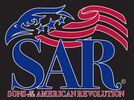
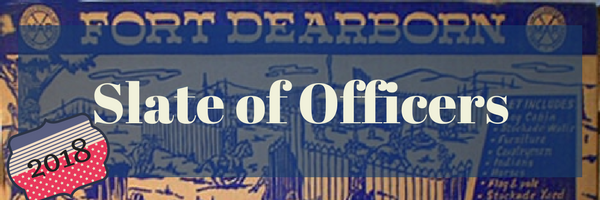
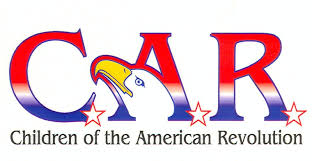
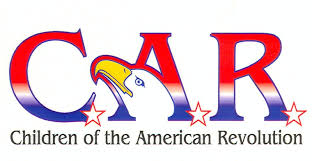
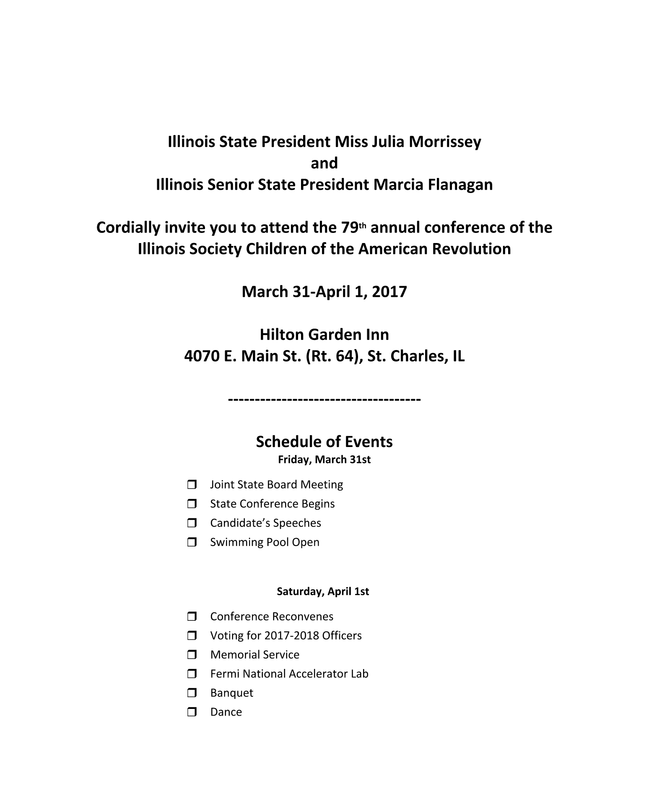
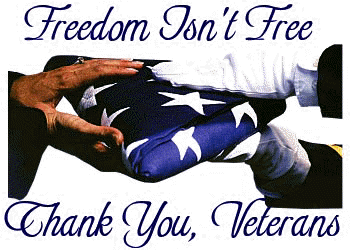
 RSS Feed
RSS Feed
